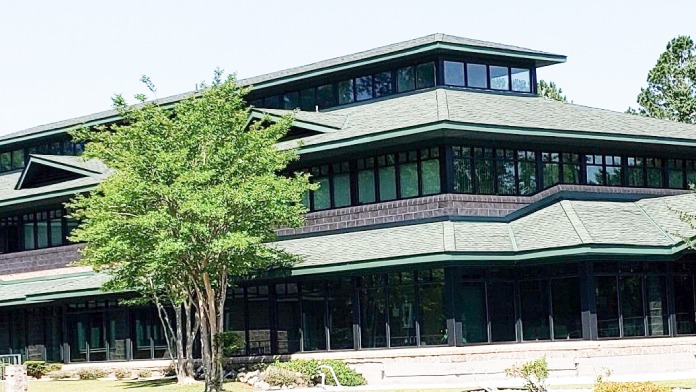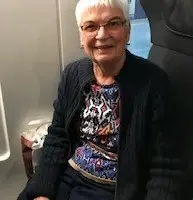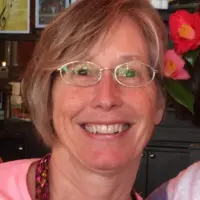Awful terrible place!!!!!! Don't like anyone there and very unprofessional with treatment for anyone who goes there. Anyone who goes there will find them selfs stuck and can't get out!! I refer you to get help somewhere else!!
About Waccamaw Mental Health Center
Waccamaw Mental Health Center is part of the South Carolina Department of Mental Health. They have locations throughout South Carolina, including the Waccamaw Center for Mental Health in Conway. Multiple programs serve children, adolescents, and adults, and include treatment for substance use and co-occurring mental health disorders.
Since it’s a public health system, they accept Medicare, Medicaid, and other government funded health plans.
A Unique Approach to Mental Health Care in South Carolina
The treatment center is in Conway, a picturesque river town only 10 miles from beautiful Myrtle Beach. The center is part of such a large network, and clients can work with mental health teams across different disciplines. This improves outcomes because clients address their mental health challenges from multiple perspectives.
After a thorough assessment, treatment options are customized to your needs. Treatment includes psychotherapy and individual counseling. They offer language services for clients whose first language isn’t English.
Facilitating Access to Substance Use Disorder Treatment
If you’re diagnosed with co-occurring mental health and substance use disorders, the center will refer you to the Georgetown Clinic about an hour from the Waccamaw location. The Georgetown Clinic offers specialized group therapy for clients diagnosed with co-occurring disorders. Clients may receive further treatment and services from local community agencies and substance use commissions through a referral.
The Homeless Project for Safe & Affordable Housing
The center works to provide affordable, safe, and decent housing for clients with persistent and severe mental health disorders. Through government grants, the center conducts outreach projects to the mentally ill homeless. They offer case management services, assessments, and referrals for these clients.
In conjunction with local developers, the center has developed three projects. One project provides 14 affordable one-bedroom units. Another project provides rental assistance vouchers to homeless families and individuals; the third project is the development of 20 affordable one-bedroom apartments.
Additionally, the SCDMH has introduced Homeshare. This innovative foster care program is for adults discharged from an inpatient facility who are unable to live alone.
Latest Reviews
Rehab Score
Gallery


Accepted Insurance





Other Forms of Payment
Medicaid is a state based program that helps lower-income individuals and families pay for healthcare. Medicaid covers addiction treatment so those enrolled can use their coverage to pay for rehab. When a program accepts Medicaid the client often pays very little or nothing out of their own pocket.
Private insurance refers to any kind of healthcare coverage that isn't from the state or federal government. This includes individual and family plans offered by an employer or purchased from the Insurance Marketplace. Every plan will have different requirements and out of pocket costs so be sure to get the full details before you start treatment.
Self-pay involves paying for treatment out of your own pocket. You can use savings or credit, get a personal loan, or receive help from family and friends to fund your treatment. If you don't have insurance or your insurance plan doesn't cover a specific program, self-pay can help ensure you still get the care you need.
Medicare is a federal program that provides health insurance for those 65 and older. It also serves people under 65 with chronic and disabling health challenges. To use Medicare for addiction treatment you need to find a program that accepts Medicare and is in network with your plan. Out of pocket costs and preauthorization requirements vary, so always check with your provider.
Military members, veterans, and eligible dependents have access to specific insurance programs that help them get the care they need. TRICARE and VA insurance can help you access low cost or no cost addiction and mental health treatment. Programs that accept military insurance often have targeted treatment focused on the unique challenges military members, veterans, and their families face.
Addiction Treatments
Levels of Care
Outpatient Programs (OP) are for those seeking mental rehab or drug rehab, but who also stay at home every night. The main difference between outpatient treatment (OP) and intensive outpatient treatment (IOP) lies in the amount of hours the patient spends at the facility. Most of the time an outpatient program is designed for someone who has completed an inpatient stay and is looking to continue their growth in recovery. Outpatient is not meant to be the starting point, it is commonly referred to as aftercare.
Treatments
Many of those suffering from addiction also suffer from mental or emotional illnesses like schizophrenia, bipolar disorder, depression, or anxiety disorders. Rehab and other substance abuse facilities treating those with a dual diagnosis or co-occurring disorder administer psychiatric treatment to address the person's mental health issue in addition to drug and alcohol rehabilitation.
Mental health rehabs focus on helping individuals recover from mental illnesses like bipolar disorder, clinical depression, anxiety disorders, schizophrenia, and more. Mental health professionals at these facilities are trained to understand and treat mental health issues, both in individual and group settings.
Programs
Adult rehab programs include therapies tailored to each client's specific needs, goals, and recovery progress. They are tailored to the specific challenges adult clients may face, including family and work pressures and commitments. From inpatient and residential treatment to various levels of outpatient services, there are many options available. Some facilities also help adults work through co-occurring conditions, like anxiety, that can accompany addiction.
Young adulthood can be an exciting, yet difficult, time of transition. Individuals in their late teens to mid-20s face unique stressors related to school, jobs, families, and social circles, which can lead to a rise in substance use. Rehab centers with dedicated young adult programs will include activities and amenities that cater to this age group, with an emphasis on specialized counseling, peer socialization, and ongoing aftercare.
Clinical Services
Cognitive Behavioral Therapy (CBT) is a therapy modality that focuses on the relationship between one's thoughts, feelings, and behaviors. It is used to establish and allow for healthy responses to thoughts and feelings (instead of unhealthy responses, like using drugs or alcohol). CBT has been proven effective for recovering addicts of all kinds, and is used to strengthen a patient's own self-awareness and ability to self-regulate. CBT allows individuals to monitor their own emotional state, become more adept at communicating with others, and manage stress without needing to engage in substance abuse.
Whether a marriage or other committed relationship, an intimate partnership is one of the most important aspects of a person's life. Drug and alcohol addiction affects both members of a couple in deep and meaningful ways, as does rehab and recovery. Couples therapy and other couples-focused treatment programs are significant parts of exploring triggers of addiction, as well as learning how to build healthy patterns to support ongoing sobriety.
Research clearly demonstrates that recovery is far more successful and sustainable when loved ones like family members participate in rehab and substance abuse treatment. Genetic factors may be at play when it comes to drug and alcohol addiction, as well as mental health issues. Family dynamics often play a critical role in addiction triggers, and if properly educated, family members can be a strong source of support when it comes to rehabilitation.
Group therapy is any therapeutic work that happens in a group (not one-on-one). There are a number of different group therapy modalities, including support groups, experiential therapy, psycho-education, and more. Group therapy involves treatment as well as processing interaction between group members.
In individual therapy, a patient meets one-on-one with a trained psychologist or counselor. Therapy is a pivotal part of effective substance abuse treatment, as it often covers root causes of addiction, including challenges faced by the patient in their social, family, and work/school life.
Trauma therapy addresses traumatic incidents from a client's past that are likely affecting their present-day experience. Trauma is often one of the primary triggers and potential causes of addiction, and can stem from child sexual abuse, domestic violence, having a parent with a mental illness, losing one or both parents at a young age, teenage or adult sexual assault, or any number of other factors. The purpose of trauma therapy is to allow a patient to process trauma and move through and past it, with the help of trained and compassionate mental health professionals.
Staff

Arthur Tisdale
Chairman

Leanne Dillian
Secretary-Treasurer

Deborah Heller
Vice Chairman

Joyce Phillips
BOD
Contact Information
164 Waccamaw Medical Park Drive
Conway, SC 29526











